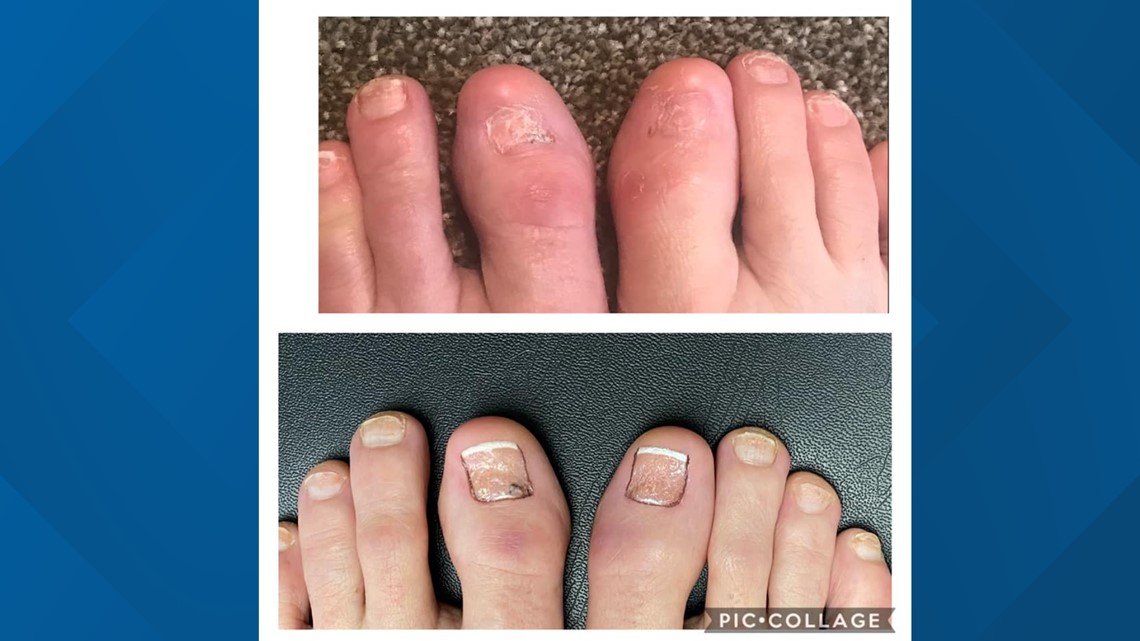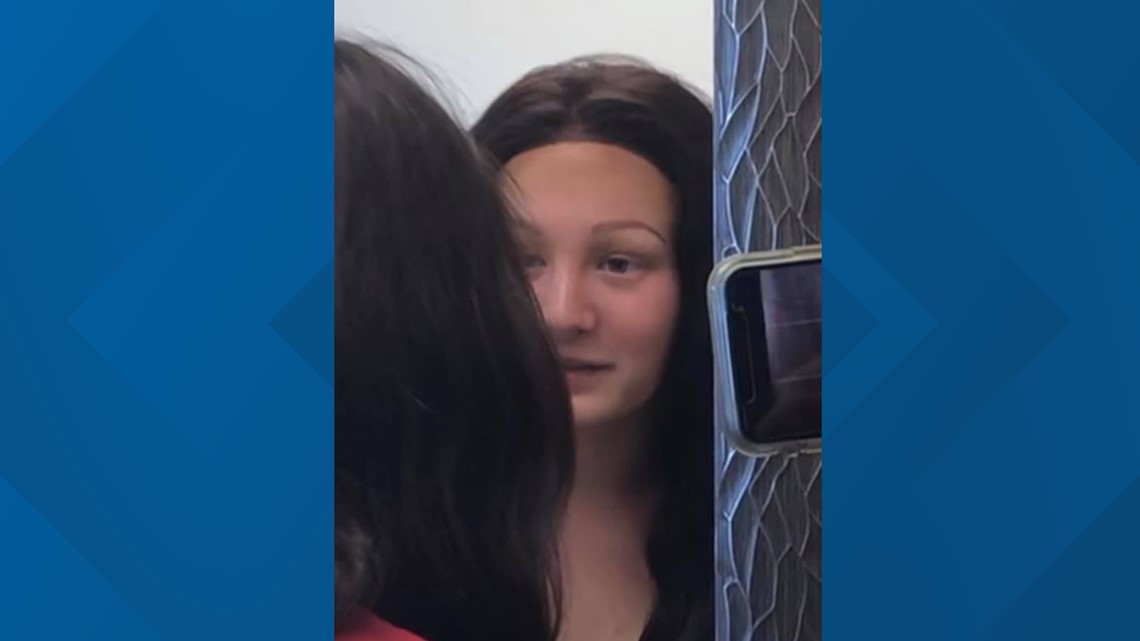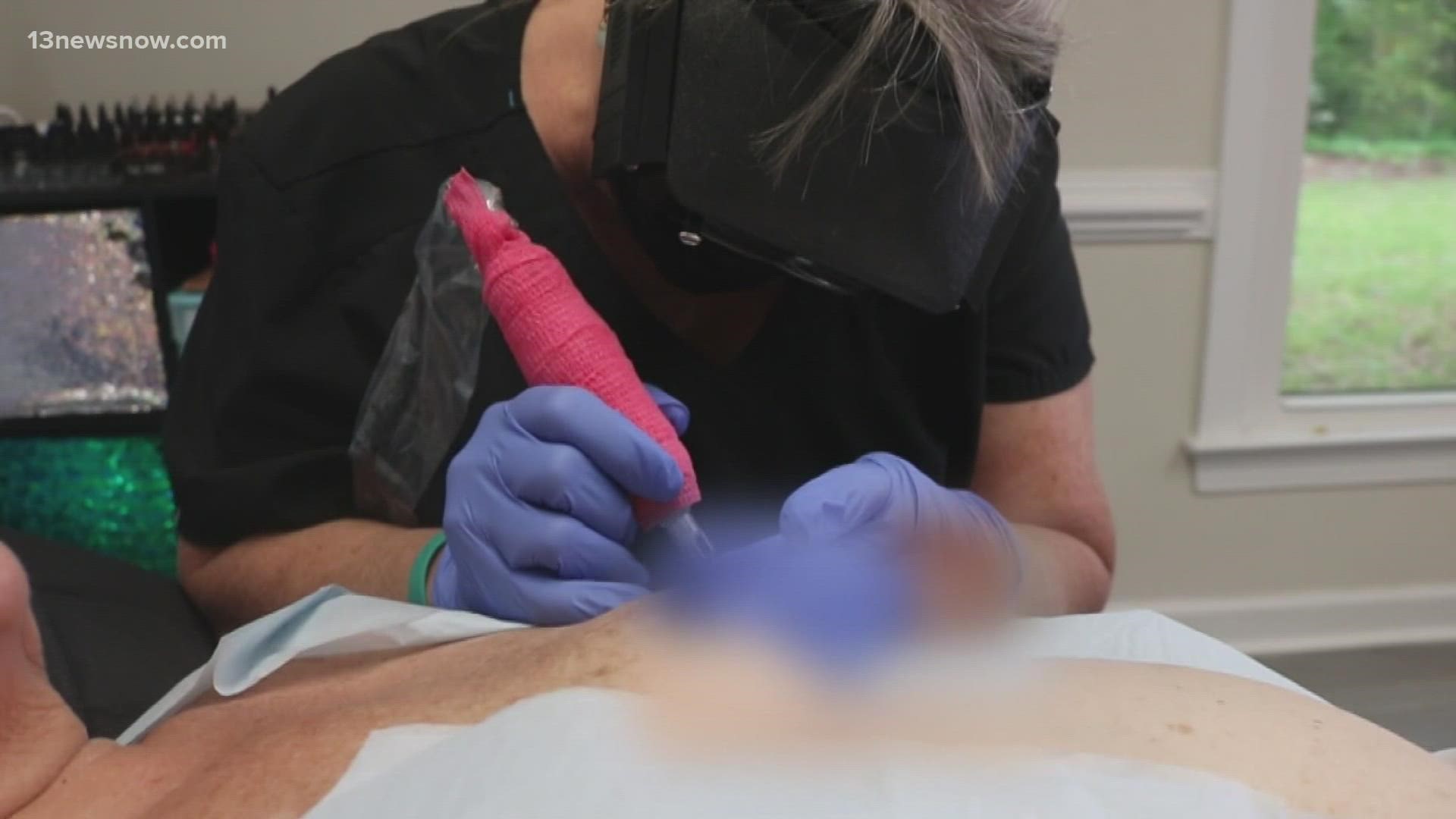VIRGINIA BEACH, Va. — Cindy Schott is changing lives through tattoos.
She's always loved helping other people and donating her time. When she met Jill Teetor more than 10 years ago, she did that through housekeeping.
"Cindy was like an angel coming into my life," said Teetor.
At the time, Teetor had just been diagnosed with breast cancer and Schott had a front-row seat to all the pain that came with it.
"We all know they lose their hair, but we don’t know that they lose their eyelashes, their eyebrows their fingernails," Schott said.
When Teetor had her double mastectomy, Schott said she was disappointed at the options Teetor had for recreating the look of her breasts.
"I was kind of ashamed or shocked that what was being offered to them didn’t look real."
So, she wanted to change that.
Schott went to school, got her license, and got to work using skin-colored tattoos to restore people’s bodies and confidence.
"She said, 'I want to go do this and be able to give back to women that have lost,'" Teetor recalled.
Debbie Holl was her first patient.
"Well, I didn’t know I was going to lose my areolas after my surgery until I woke up and went, ‘Oh, surprise,’" Holl said. "At 60 years old I thought it was OK. That I’d be fine, it didn’t matter."
She said after the surgery, her doctor offered to have their in-house artist tattoo areolas back on her. After Holl looked at what she called "unrealistic" work, she said, "No, thank you."
But eight years after her mastectomy, she changed her mind.
"I needed to be me again."
Teetor told her about Schott's work. So, she came to the salon and sat under the paramedical tattoo artist's steady hands.
"You look at the pictures, you'd never know they weren't real," Teetor said about the 3D areolas Schott created.
It’s a memory Schott and Holl keep in their phone and hold close to their hearts.
"I was laughing, I was sobbing, and I said, 'You gave me back my life,'" Holl said as they re-watched the video of the reveal together.
In the last four years, Schott has expanded her work and created lips for burn victims, covered scars for domestic violence survivors, and created toenails for people who lost them because of cancer.
She even tattooed makeup on a blind professor who told Schott she just wanted to look nice for her students, even though she couldn't see the work herself.


Schott said she will always remember her favorite day when she created eyebrows for a teenage girl with alopecia totalis.
"She looked in the mirror and at first she had that shock... like, 'It’s real,'" Schott said. "Whenever I feel like I’m not making a difference, I go find her picture."


When asked if there's anything someone has come to her with that she couldn't handle, she said she welcomes a challenge.
Even though she’s helped so many people, she wants to do more. However, Virginia Beach laws make it difficult. They have to operate under a tattoo license and only in certain zones, which she says are usually tucked away in the shadows.
"We get a lot of stereotyping," Schott said. "What we do is life-changing and medical."
She said a lot of people believe what she does is all about vanity, if they even know about her profession at all.
"Sometimes it’s bigger than the scar. I have women that have been through domestic violence and that person took something from them and to look in the mirror and see that as a reminder to them that this happened. It’s almost like you’re erasing that. You’re taking that away," she said. "We all have that thing about us that makes us uncomfortable, that makes us insecure... and to be able to take that away and erase it, it’s beautiful."
Schott said there are so many other women who do what she does, but because some cities make it so hard to work, a lot of women can't operate the way they need to.
Back in March, Schott addressed the problem with Virginia Beach City Council members and they told her they want to work with her on fixing that.
"I feel like I’m pioneering because I’m putting it out there that this is not OK. We need to be able to do this and be able to have more places to do it and there’s nothing to be ashamed of. This is really a beautiful thing. A really precious thing for so many."
To people like Holl, what Schott does is vital. She just had her areolas touched up at the end of April, four years after her initial appointment with Schott.
Teetor hasn't taken that step yet.
"When you’re a woman and things are taken away from you, you question, 'Am I still a woman?'" she said. "Now I think I want it. It’s time."
She said it will be a sign that her pain, fighting, and healing are complete.
Schott said being able to give that back and make them feel whole again is everything.
"When I pull up out front, I can’t wait to get in here because today I make a difference."

